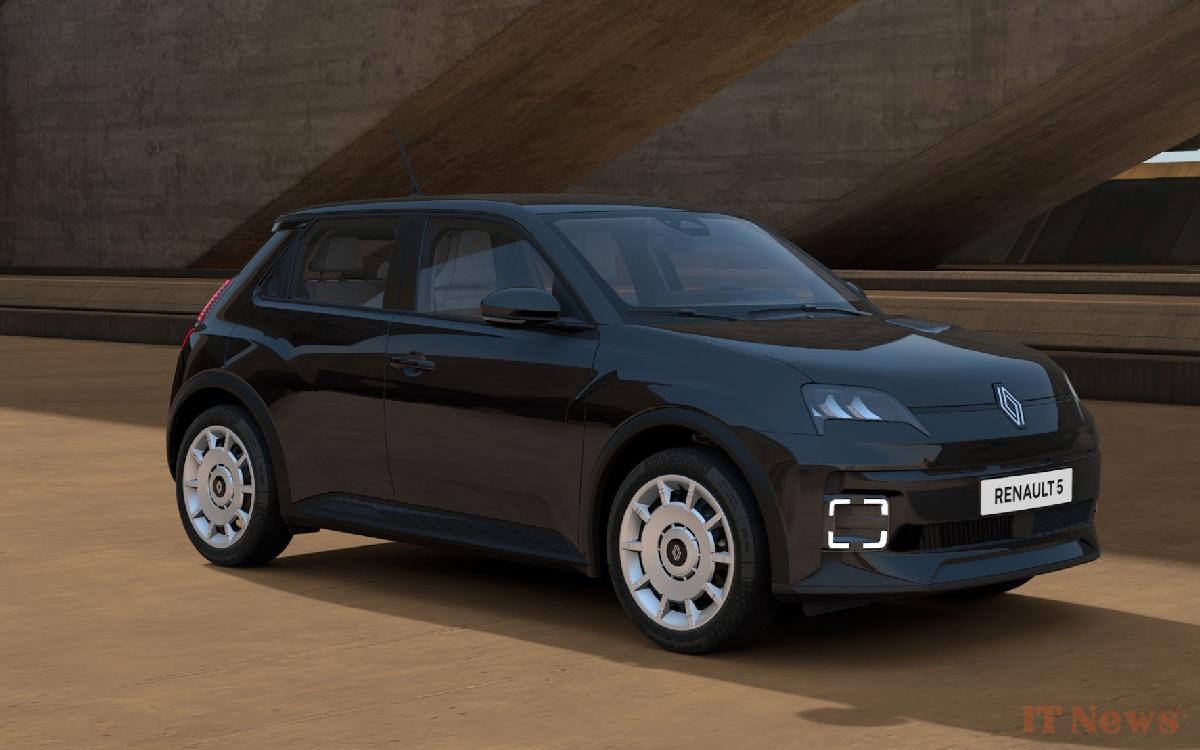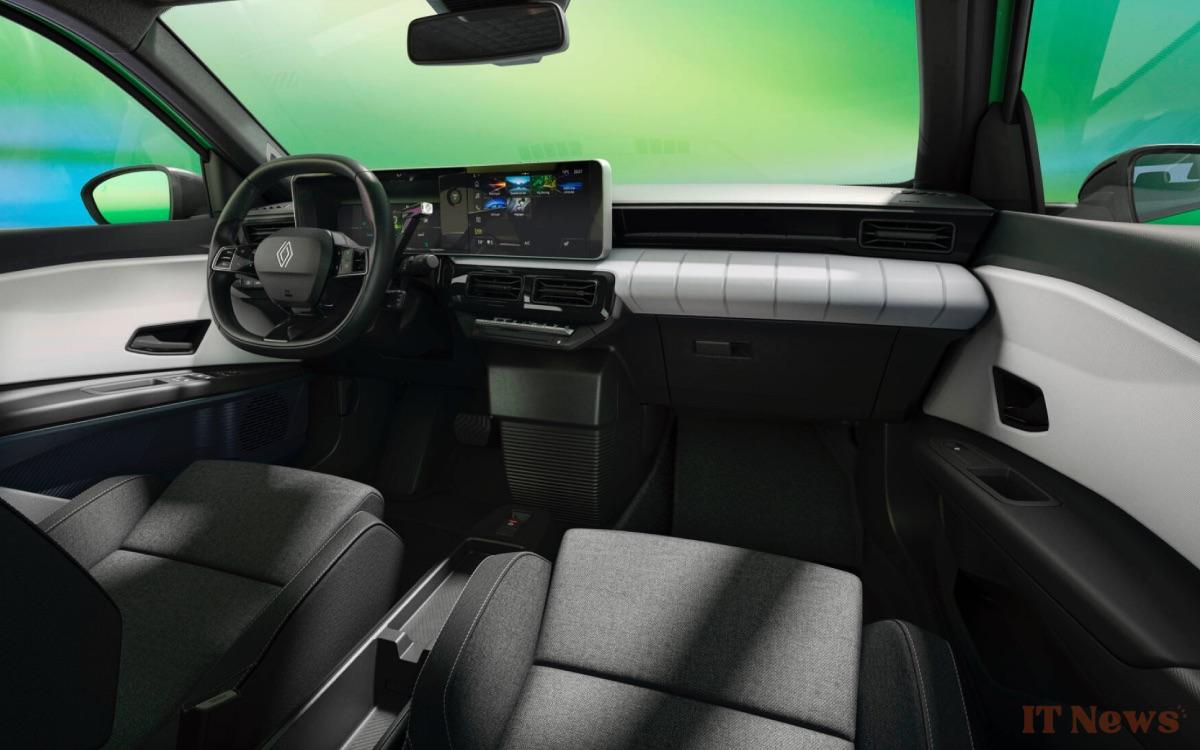It had been expected for over a year: the most affordable version of the electric R5 is now available. Renault is keeping its price promise, but has to lower certain features.
Announced from its presentation as a popular electric city car, the Renault 5 E-Tech was initially a long-awaited release. The brand had started by launching high-end versions, far from the €25,000 it was hoping for. It took over a year for the most affordable variant, called the “five,” to finally arrive in the catalog. A model designed to appeal to urban buyers, sensitive to price and design.
The R5 E-Tech five is now available at €24,990 excluding the ecological bonus. Taking into account the available subsidies — up to €4,000 bonus depending on income and €310 CEE bonus — its price can drop to €20,680. For this price, the car retains a decent set of features: 10.1-inch touchscreen running Android Automotive OS (without Google services), 7-inch digital instrumentation, manual air conditioning, electric windows and mirrors, hands-free start, automatic high beams and driving aids such as autonomous braking and lane keeping. Equipment that remains rare in this price range.
The Renault 5 E-Tech five retains the essentials despite a reduced technical sheet
To stay under the €25,000 mark, Renault had to make some technical compromises. The electric motor of this version develops 95 hp, compared to 120 hp for the evolution version sold for €3,000 more. It is also produced in China, while that of the higher versions is assembled in France. The range, however, remains at 310 km thanks to the 40 kWh battery, shared with the other models. But the R5 five does without direct current (DC) fast charging and a heat pump. The 11 kW AC on-board charger remains, but loses its bidirectional function. These absences limit the possibilities for long journeys or intensive use outside urban areas.
In terms of design, the five retains the 18-inch steel wheels with their retro hubcaps and a black star finish as standard. The pop green remains available as an option for €800. The overall look remains faithful to the more expensive versions, with the neo-retro look that attracted attention from the first visuals. But the competition is there: the Citroën ë-C3, for example, is listed at €23,300 excluding bonuses and already accepts fast charging up to 100 kW. Other models like the Dacia Spring or the Leapmotor T03 also play the low price card with fewer compromises on this point. Renault is playing on its image and its finishes here, but certain technical choices like the absence of fast charging could penalize this model on the ground.





0 Comments